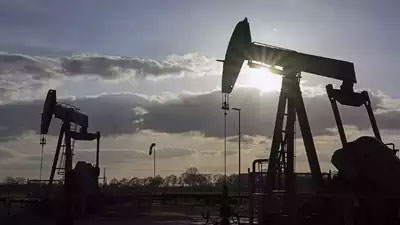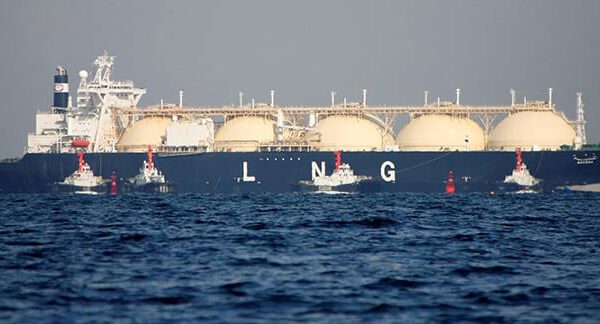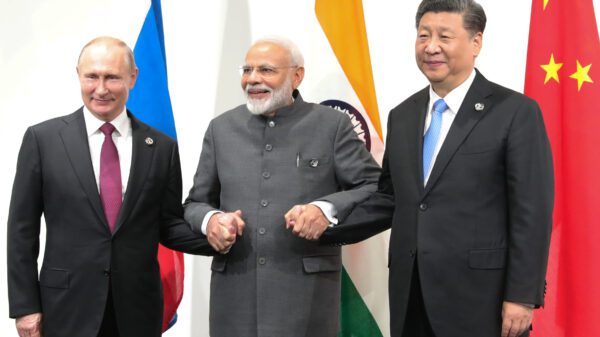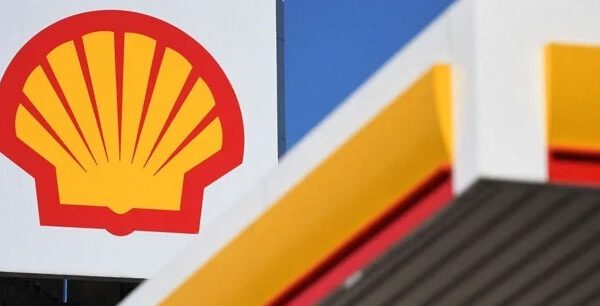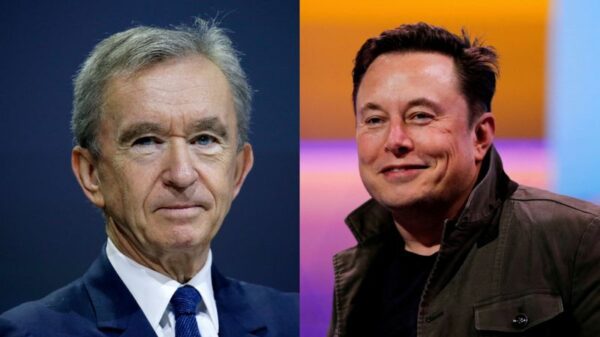What is the foreign exchange reserve of Bangladesh, what is the objection of IMF?
The International Monetary Fund (IMF) has said that the way Bangladesh’s foreign exchange reserves are being calculated is not correct. According to the way the IMF is asking to calculate, the current reserve of the country is 26 billion dollars. Bangladesh Bank Governor Abdur Rauf Talukdar said after a meeting with IMF representatives on November 9 that the country currently has foreign exchange reserves of $34.3 billion. The amount left after deducting $8 billion from that is the net foreign exchange reserve. In this context, the amount of net reserves is 26.3 billion dollars. He said in the press conference, “IMF has asked to show the amount of foreign exchange reserves of the country in net instead of gross. We have no objection to it.
How were foreign exchange reserves calculated?
In all the countries of the world, the reserve of foreign exchange with the central bank is considered as the net reserve of the country. But till now in Bangladesh, while calculating the reserve, along with the net reserve, investment in various items or the dollar given as loan from the reserve was also added. According to the latest data of Bangladesh Bank, the amount of gross foreign exchange reserves in the country is 34.23 billion dollars. The IMF objected to this and said that according to international rules, Bangladesh Bank should show the same amount as reserves which it has kept for use. Otherwise, the correct message on the issue of reserves will not go through. Bangladesh Bank spokesman Abul Kalam Azad told BBC Bangla on Sunday, “We used to keep accounts both gross and net. But the reserves were shown as gross. Now the concerned department has to show it as net reserves.” Working towards it. Currently this process is going on. The governor of Bangladesh Bank told reporters on Wednesday, “We have invested about eight billion dollars in various items. After reducing that, the net reserves will be $ 26.3 billion. Even when our reserves were $48 billion, we calculated in the same way.
These include $600 million in Export Development Fund (EDF) to enable exporters to avail loans in foreign currency to facilitate exports of various commodities, $200 million in Green Transformation Fund (GTF) set up to invest in environment-friendly industries, long $38.5 million in the Term Financial Facility Fund and $58 million given to Bangladesh Airlines through Sonali Bank have also been shown as part of Bangladesh’s gross foreign exchange reserves. The governor has said that ‘we give loan for 120 days under EVF. You can take it back whenever you want. To deal with the economic crisis, in August 2021, a loan of $ 200 million was given to Sri Lanka from the Reserve of Bangladesh. Earlier there was talk of returning it in three consecutive monthly installments. But later this deadline was extended. Regarding this, he had to say, “We are working towards the return of the loan of $ 200 million given to Sri Lanka. A meeting has been held with the Governor of Sri Lanka. He has assured to return this loan.” But due to non-repayment of the amount of invested funds or loan, the amount of Bangladesh’s reserves will remain 26.3 billion dollars.
What does the $26 billion reserve mean?
Exports and remittances are the main sources of foreign exchange earnings of Bangladesh. But since last October, there has been a decline in the income from both these heads. Foreign exchange worth $164.70 million came into the country through remittances in October, which is the lowest in the last one and a half years. Along with this, compared to the same period last year, the export earnings also decreased by 7.85 percent to $4.35 billion. Due to this the deficit of balance of payment has increased further. According to the latest data from Bangladesh Bank, the current trade balance deficit of foreign transactions stood at $36.1 million during the three months from July to September. That is, goods worth $3.61 billion more were imported than the amount of goods exported. But the total trade deficit has reached $7.55 billion. That is, during this period, Bangladesh’s exports and remittances earned an income of $ 1180 million. But the expenditure of imports and the total amount of currency going abroad was 1935 million dollars. That is, the total trade deficit is increasing continuously. The fiscal year 2022-2023 started with a huge balance of payments deficit of $18.70 billion. However, this deficit is compensated to some extent by getting foreign loans and financial assistance and reducing import expenditure. But the way Bangladesh’s trade deficit is increasing continuously, economists do not see any possibility of making up for this deficit. In the National Parliament of Bangladesh, Prime Minister Sheikh Hasina had said on November 6, “It is possible to pay import expenses for at least five months with the amount of reserves we have. According to international standards, having reserves equal to three months’ import expenses.” That’s enough.”
But the current trade deficit is increasing further due to decrease in income from exports and remittances. To make up for this loss, the amount of $ 833 million is being reduced every month from Bangladesh’s reserves. Economists are worried about this. Economist and researcher Khandkar Golam Muazzam says, “Export income and remittances are not increasing compared to import expenditure, on the contrary it is decreasing. This is increasing the gap. To compensate for this, funds have to be given from the reserves. But this gap is continuously increasing. Bangladesh government is taking loan from IMF only to make up for this deficit. But the level at which Bangladesh’s trade deficit has reached, it is not possible to compensate it even with this loan. This is the reason why IMF has suggested some reforms to make up for this deficit. These include reforms in the head of revenue and taxes, creating a rational spending system, ending the limit of interest on deposits and loans, reforming the banking system, inflation control and preparing a modern currency policy, removing weaknesses in the economic head, monitoring tight. creating a conducive environment for attracting business and foreign investment and enhancing human skills etc.
What are the dangers in the eyes of economists?
Dr Khandkar Golam Muazzam, research director at the Center for Policy Dialogue, told BBC Bangla, “With the central bank’s foreign exchange reserves of $26 billion, the total amount on adding the amount deposited in various heads and the amount given as loan is 34 billion. would be billion dollars. But the way this currency reserve has decreased from $ 48 billion to $ 34 billion in a year, it is a matter of most apprehension. In August last year, Bangladesh Bank had foreign exchange reserves of $ 48 billion. Reconciliation is done every three months in the Asian Clearing Union. The last time this was done on 26 October. Dr. Khandkar Golam Muazzam is hopeful that there will be some improvement in the situation of currency reserves after getting loan from IMF and other institutions. Bangladesh officials are talking about eradicating the import expenses of four and a half months from the existing reserves. Muazzam says, “But the matter of concern is that $833 million is being reduced from our reserves every month to bridge the trade deficit. As a result, if there is no change in the global situation, the cost of imports does not come down. , If the stock continues to decrease like this, then the biggest concern is that for how many days this stock will be able to pay the import expenses.
What can the government do to deal with the crisis?
Economists say that in terms of foreign exchange reserves, Bangladesh is in such a condition that there is no chance to use foreign exchange anywhere except in the most urgent areas. Economist Dr. Khandkar Golam Muazzam says, “At the moment it is necessary to proceed very thoughtfully and cut down. There is no opportunity to use foreign currency except for the most necessary item. The internal items in which the reserve is being used, for example Dredging of Payra port and buying new aircraft, it looks like an extra expense to me.” However, in the meantime, the Bangladesh government has taken several decisions such as limiting the import of luxury goods, strict monitoring of imported items, banning foreign tours of government officials and employees, and stopping the purchase of vehicles in various projects. Dr. Khandkar Golam Muazzam says, “A strategy will have to be made to reduce the cost of reserves. Items like exports or remittances which have an important role in foreign exchange earnings, the government can use the amount of reserves in those items. Expenditure on items reduces the current balance of the government, some decisions have to be taken like reducing their consumption and at the same time, it is time to limit the import of less important items and luxuries other than essential food items The government should take strict steps in these matters.”
He said that the government should give importance to how the amount which is decreasing from the reserves every month, how it can be handled. Economist Dr. Muazzam says, “It is necessary to stop the continuous decline in foreign exchange reserves. For this, exports and remittances may not be increased even if desired. In such a situation, the government can focus on increasing the sources of domestic income. These include increasing revenue, reducing misuse of subsidies, reducing bad debt.” He believes that in this way the government can reduce expenditure on one hand and increase income from internal sources. As a result, the pressure on the reserves will decrease. Government The government should make efforts in this direction that the challenge of deficit can be met as far as possible from the internal income itself. He said that the government will also have to think about what else it can do. Decisions can be taken to tighten the import of fuel, implement rationing system in the use of fuel. He says, “If the prices of fuel and food items decrease in the global markets, import expenditure will probably decrease. But at present there is no such possibility. That’s why the government has to pay attention to how the economy can be improved within the country.

